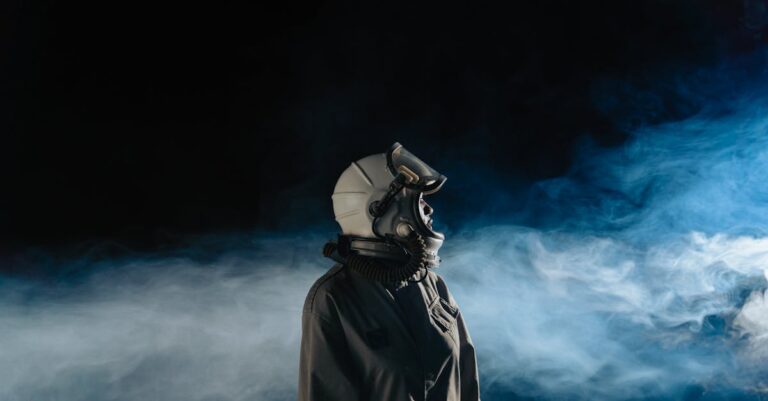
Dr. Elara Voss adjusted the dial on the cylindrical device, its surface etched with intricate patterns that seemed to shift when viewed from different angles. The lab’s fluorescent lights buzzed overhead, casting a sterile glow over the steel worktables. She exhaled, her breath fogging the glass of the containment chamber. Inside, a small sphere hovered, its surface rippling like liquid mercury. The project code—Project Hollowing—had been sealed for decades, but Elara had uncovered the files in a forgotten archive. Now, she was the only one left to see where the experiment had gone.
The sphere pulsed, emitting a low hum that vibrated in her teeth. She reached for the control panel, fingers trembling. The instructions were unclear—just fragments of notes scrawled in a shaky hand: *”Test subject 42. Monitor neural activity. Observe shifts in perception.”* She had no idea what she was about to unleash, but the curiosity had already taken root. It always did.
The lights flickered. A gust of air rushed through the lab, carrying the scent of ozone and something metallic, like rusted steel. The sphere’s surface darkened, swallowing the light. Elara stepped back as the hum deepened, resonating in her skull. Then, without warning, the chamber’s glass shattered.
She hit the floor, hands scrambling for the emergency shutoff. The sphere had fallen, rolling across the concrete. It stopped at her feet, now a smooth black disc, reflecting nothing. Her pulse roared in her ears. She reached out, fingertips grazing its surface. A coldness seeped into her skin, sharp and invasive. Then—images. Not visions, but memories not her own: a man in a lab coat, shouting; a room filled with bodies suspended in liquid; a voice whispering, *”It’s not a machine. It’s a door.”*
Elara yanked her hand back. The cold remained, clinging to her like a second skin. She scrambled to her feet, eyes darting around the lab. The door was locked. The intercom crackled, static buzzing before a voice—deep, distorted—spoke.
“You shouldn’t have touched it.”
She froze. The voice wasn’t from the intercom. It was inside her head, pressing against her thoughts. She backed toward the wall, heart hammering. “Who’s there?” Her voice sounded foreign, too loud in the silence.
“You know who I am,” the voice replied. “You always have.”
A flicker of recognition stirred in her mind, but it slipped away before she could grasp it. The sphere rolled closer, its surface now smooth and featureless. She had to leave. Now. But the door remained locked, and the air had grown heavy, thick with the scent of burning plastic.
“You’re not ready,” the voice said. “But you will be.”
Elara turned, sprinting toward the exit. The corridor beyond was dim, lit by emergency lights that pulsed like a heartbeat. She didn’t stop running until she reached the main control room, where a terminal still glowed with data streams. She slammed her hand on the keyboard, pulling up the project files. The screen blinked, then displayed a single line: *”Subject 42: Failed. Consciousness fragmented. Reclassified as Unknown.”*
A sound behind her. She spun, but the room was empty. The hum returned, louder this time, vibrating in her bones. The sphere had followed her. It hovered in the doorway, casting no shadow. She reached for the emergency override, but the system was offline. The voice returned, softer now.
“You’ve seen the truth. Now you must choose.”
Elara’s breath came in short bursts. The sphere pulsed, and the walls of the room seemed to stretch, warping like heat haze. She saw herself—different, older, standing in a lab that wasn’t this one. A man with her eyes stood beside her, holding a device identical to the sphere. They were laughing. Then the image dissolved.
“What do you want from me?” she whispered.
“To remember,” the voice said. “To see beyond the walls.”
The sphere floated closer. Elara’s hand hovered over it, trembling. She had spent her life chasing answers, peeling back layers of secrets. This was the core, the thing that had been hidden for so long. She could feel it—calling to her, promising knowledge beyond comprehension.
She reached out.
The room exploded in light.
When she opened her eyes, she was standing in a vast chamber, the air thick with the scent of ozone and something sweet, like overripe fruit. The sphere was gone. In its place, a door stood before her, its surface etched with the same patterns as the device. She stepped forward, hand hovering over the handle. Behind her, the hum of machinery faded, replaced by the sound of her own breathing.
The door creaked open.
Inside, a corridor stretched into darkness. The walls pulsed faintly, as if alive. Elara hesitated, then stepped through. The air shifted, cool and wet, like she was walking into a dream. She didn’t know what waited beyond the door, but the curiosity had never felt more urgent. It was the only thing that had ever mattered.
She walked on.


